Exactly 100 years ago, on June 21, 1925, in Guangzhou (China), leader Nguyen Ai Quoc founded Thanh Nien Newspaper - the first revolutionary newspaper of our country, the mouthpiece of the Vietnam Youth Revolutionary Association. Through Thanh Nien Newspaper, leader Nguyen Ai Quoc skillfully combined the dissemination of Marxism-Leninism with the path of saving the country and saving the people according to the new requirements of the Vietnamese revolution at that time, gradually escaping the obscure and dead-end situation of the patriotic scholars and literati in the late 19th and early 20th centuries.
Head of the Central Propaganda and Mass Mobilization Commission Nguyen Trong Nghia speaks at the opening ceremony of the 2025 National Press Festival
PHOTO: TUAN MINH
Through revolutionary journalism, communist organizations were formed and developed, contributing to the birth of the Communist Party of Vietnam on February 3, 1930. Over the past century, our country's revolutionary journalism has grown rapidly, strongly, and steadily, becoming an important and pioneering part in the revolutionary cause of our Party and people. Going from secret to open struggles, from national liberation struggles to resistance and nation building, from pioneering the renovation process to deep international integration, the revolutionary journalism has always been a pioneering and sharp force on the ideological and cultural front of the Party, the trusted voice of the Party, the State and the people, and a solid bridge between Vietnam and international friends.
During his lifetime, President Ho Chi Minh always advised journalists: "... Must have a firm political stance, politics must be mastered. Only when the political line is correct can other things be correct. Therefore, all our newspapers must have a correct political line"[1]. In his speech at the 3rd Congress of the Vietnam Journalists Association , he emphasized: "Journalists are also revolutionary soldiers. Pens and papers are their sharp weapons"[2]. In a telegram sent to the Asian-African Journalists Association, he affirmed: "For us journalists, the pen is a sharp weapon, the article is a revolutionary proclamation"[3]. He encouraged and reminded journalists: "Your pens are also sharp weapons in the cause of supporting justice and eliminating evil"[4].
Head of the Central Propaganda and Mass Mobilization Commission Nguyen Trong Nghia, President of the Vietnam Journalists Association Le Quoc Minh and leaders at the 2025 National Press Festival
PHOTO: TUAN MINH
The outstanding contribution of our press in the cause of innovation, promoting industrialization and modernization of the country, building and defending the Fatherland and international integration is always taking the lead in propagating the Party's guidelines and policies, the State's policies and laws; encouraging and affirming the achievements and lessons of the innovation process; participating in the struggle to protect the sovereignty of the seas, islands and borders of the Fatherland; fighting to repel and eliminate the bad, evil and backwardness; taking the lead in the fight against corruption, waste and negativity; protecting the Party's ideological foundation, contributing to the defeat of the " Peaceful Evolution" strategy of hostile forces...
Most journalists always practice and strive to have "bright eyes, pure hearts, sharp pens", wholeheartedly serving the Fatherland and the people. In addition, journalistic activities still have a number of limitations and weaknesses, some of which are long-lasting: some press agencies deviate from their principles, purposes, and target audiences; do not attach importance to setting examples, encouraging, and promoting new factors, advanced models, "good people, good deeds", indulge in information about the negative side of society, and the way of reporting still lacks humanity and education; a number of journalists take advantage of the name of journalism for personal gain, profiteering, violating the law, and professional ethics; participating in social networks lacks standards and responsibility; some representative offices and resident reporters do not operate in accordance with their functions, tasks, and powers, leading to many mistakes and negativity; the situation of "newspaperization of magazines and electronic information sites" has not been fundamentally overcome.
The political and ideological struggle on the press and media battlefield, whether in wartime or peacetime, whether in subsidy or market times, is always fierce and complicated; in the current period, that nature and challenge are even higher and more intense than before. The scientific and technological revolution, especially information technology and the globalization trend, are taking place strongly and deeply, creating many opportunities and great challenges. The ways of receiving and exchanging information (internet, websites, personal blogs; artificial intelligence (AI); multi-dimensional interaction in information); ideological trends and tendencies are infiltrating and influencing our country more and more strongly and multi-dimensionally. Opportunistic, reactionary and hostile forces are intensifying their sabotage against us in many aspects, especially in the fields of politics, ideology, culture, press and media.
Proud of the glorious tradition of Vietnam's revolutionary press, more deeply aware of the important responsibilities of the press in the new revolutionary period, closely following the spirit of the Draft Document of the 14th Party Congress " building a professional, humane, modern press, publishing, and media ". The requirement is that the press not only fulfills its role as a media but also becomes a force in building the cultural environment, shaping social norms, and spreading the core values of the nation. That is the value system of the Vietnamese people "patriotic, benevolent, loyal, honest, united, diligent, creative" built, consolidated, and developed through media, education, and culture.
To do so, the press needs to perform well its function of reflecting, orienting and criticizing society; at the same time, strengthen its role in educating and spreading the belief and aspiration for national development. Along with promoting propaganda for party congresses at all levels towards the 14th National Congress of the Party, the important task at this time is that the press needs to focus on building a systematic, scientific and in-depth propaganda plan, creating a spread so that all cadres, party members and people can grasp and deeply understand, thereby implementing well and effectively the 4 Resolutions of the Politburo: Resolution No. 57-NQ/TW dated December 22, 2024 of the Politburo on breakthroughs in science and technology development, innovation and national digital transformation; Resolution 59-NQ/TW dated January 24, 2025 of the Politburo on "International integration in the new situation"; Resolution No. 66-NQ/TW on innovation in law-making and enforcement to meet the requirements of national development in the new era; Resolution No. 68-NQ/TW dated May 4, 2025 of the Politburo on private economic development. This is a very important requirement for the press because the above 4 Resolutions will be the "Quad Pillars" to help us take off" " are the fundamental institutional pillars, creating a strong driving force to bring our country forward in the new era, realizing the vision of a developed, high-income Vietnam by 2045 " as directed by General Secretary To Lam at the recent National Conference to disseminate and implement Resolution No. 66-NQ/TW and Resolution No. 68-NQ/TW of the Politburo.
In the context of globalization and technological development, the press needs to constantly innovate its methods of operation and apply technology to promptly meet diverse information needs, while protecting the Party's ideological values in modern society. The press must contribute to forming a healthy "digital cultural space", promoting a positive lifestyle, a spirit of dedication, social responsibility, civic attitude and smart consumer culture.
One of the urgent tasks is to improve the capacity, qualities, political will and professional level of the press team. Focus on training a team that is "both red and professional", has strong political will, is proficient in professional skills, and understands modern media technology. At the same time, promote journalism models linked with education - culture - science to improve content quality and expand social influence.
In that context, the core task of the press is not only to reflect information, but also to proactively create a positive ideological space, form a progressive value system, orient public opinion and contribute to building a healthy cultural environment. The press must become an ideological institution with high interaction capacity, closely linked to reality, leading society with ideals, culture and revolutionary ethics.
It is necessary to continue to improve the organization of the press apparatus in the direction of streamlining, operating effectively, efficiently and effectively. This process not only helps to rectify press activities but also creates conditions for the press to increase in-depth investment in technology, human resources and products, promoting the strengths of each press agency and press type. However, it is necessary to unify the perception that streamlining does not mean reducing the role, streamlining is for press agencies to better and more accurately perform the mission of information and propaganda; serving more substantially and effectively the interests of the Party, State and people. The Party and State will pay attention to investing resources, finance, facilities, ensuring conditions for press agencies to best perform their roles and missions.
The global media environment has changed profoundly with the rise of social media, artificial intelligence, big data and cross-border platforms, creating unprecedented challenges and opportunities in the history of journalism. The explosive development of science and technology, especially artificial intelligence, cross-border digital platforms, integrated media and social media, has fundamentally changed the way information is produced, distributed and consumed. Traditional concepts of newsrooms, copyright, identification of journalists, censorship processes, handling of violations, the role of mainstream media in orienting public opinion, etc. are facing major challenges.
The country's press needs to develop synchronously in terms of organization, administration and technology to meet the development requirements in the digital age. Press agencies need to transform the newsroom model towards converging content - technology - human resources, developing multi-platform media products, and innovating the way of transmitting information to create a more profound impact on social life. Each newsroom must become a center for digital content production - a place where modern technology and ideological courage converge. Each journalist needs to train to become a skilled soldier in the modern "combat" environment; be able to adapt to new technology, invest in improving the quality of content and build trust with readers. Because they are not only a force providing information but also need to become a leader and raise public awareness in receiving and processing information intelligently and responsibly.
An urgent and strategic task is to amend and supplement the Press Law, aiming to perfect the legal framework, realize the Party's policies and guidelines in the press field, and at the same time address existing shortcomings, ensuring compliance with the strong changes in modern media practices and the development orientation of revolutionary press in the new period. The Press Law (amended) needs to more clearly demonstrate the revolutionary and socialist nature of our country's press, contributing to strengthening the monitoring and management mechanism while also ensuring a creative environment, healthy competition, promoting innovation and diversifying information products. This is not only the work of legislators, but requires proactive participation, intellectual contributions and responsible voices from journalists, press management agencies and the whole society. Each legal regulation needs to accurately reflect the dynamic nature of social life, while creating conditions for press agencies to affirm their role in leading public opinion, mastering the information space, and not being dissolved into the market flow or overwhelmed by distorting and manipulative forces.
The 100th anniversary of the Vietnamese Revolutionary Press is not only an occasion to look back on a glorious journey, but also an opportunity to reaffirm the political, cultural and social mission of the press in the new development stage of the country. Over the past century, the revolutionary press has devoted itself to serving the glorious revolutionary cause of the Party and the nation through all historical changes; in the coming century, the press needs to continue to be the force that guides public opinion, builds trust, protects the ideological foundation and arouses the aspiration to develop a prosperous and happy country.
With the comprehensive leadership of the Party, with the glorious revolutionary tradition and with a team of dedicated, intelligent and courageous journalists, we deeply believe that: Vietnamese revolutionary journalism will continue to be the ideological pillar, the driving force for the development of Vietnamese culture and people, contributing to building an increasingly powerful and prosperous country.
Thanhnien.vn
Source: https://thanhnien.vn/bao-chi-cach-mang-viet-nam-ngon-co-tu-tuong-dua-dat-nuoc-vung-buoc-vao-ky-nguyen-moi-185250620174531019.htm


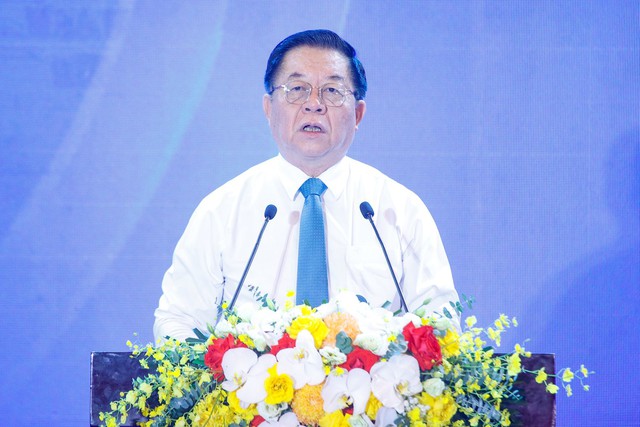
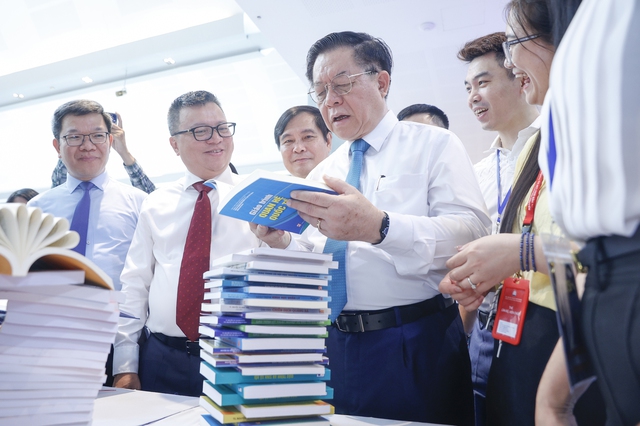






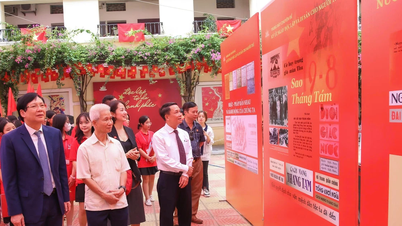

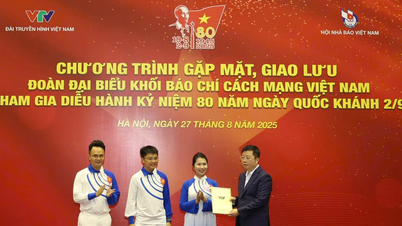
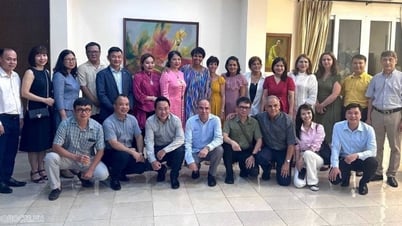

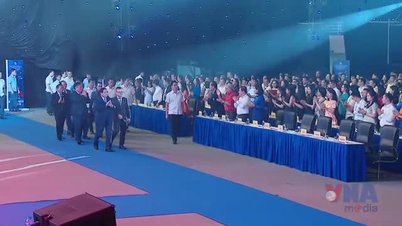
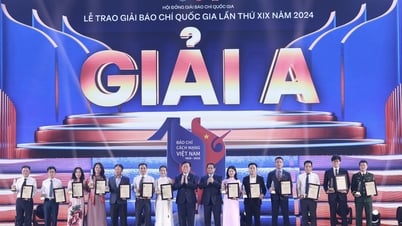

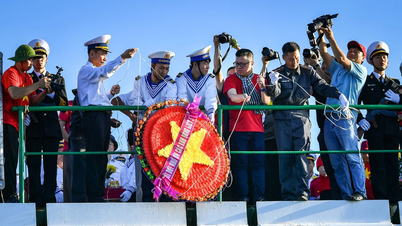















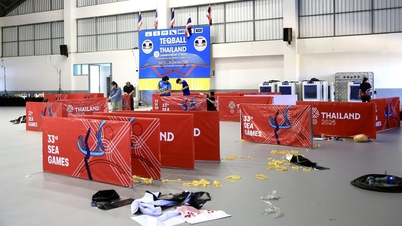

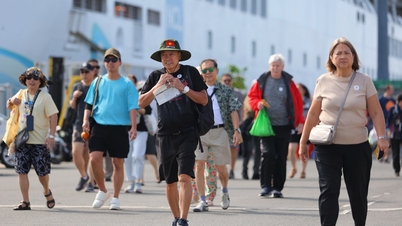

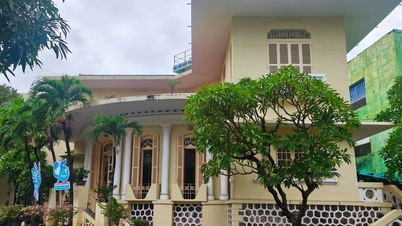

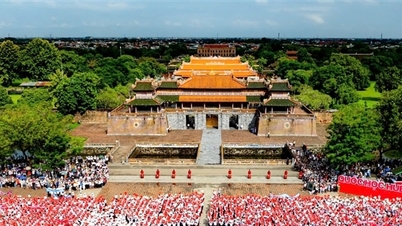

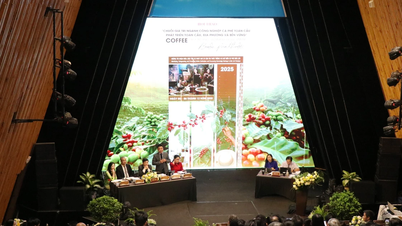





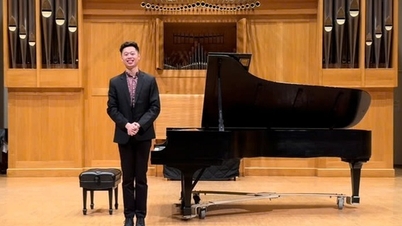

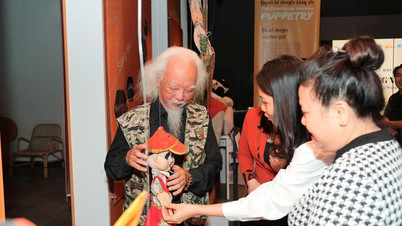

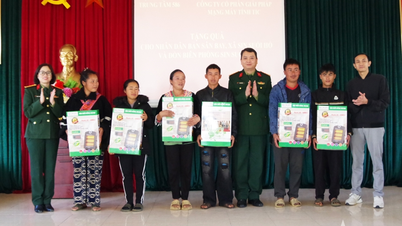


































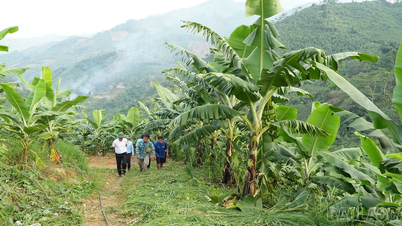




























Comment (0)